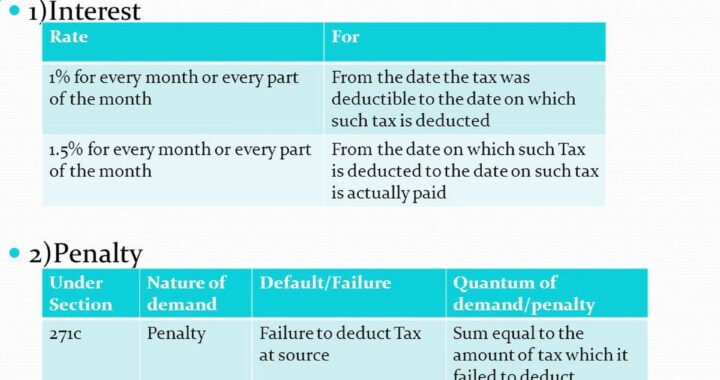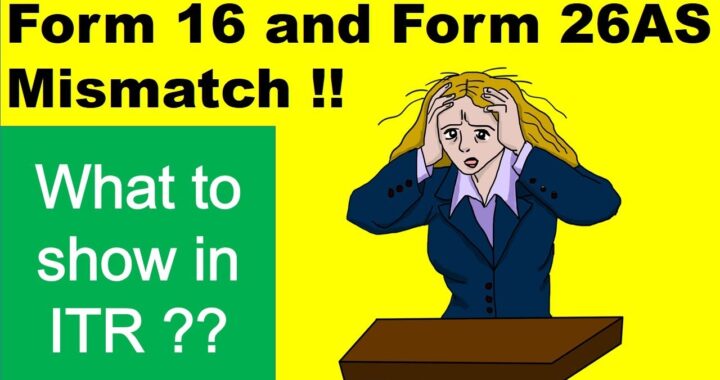All about clubbing of income of spouse and children
 According to the provisions of the Income tax Act, 1961, a person is taxed not only for his own income but sometimes also for the income which does not personally belong to him.
According to the provisions of the Income tax Act, 1961, a person is taxed not only for his own income but sometimes also for the income which does not personally belong to him.
Sharing of income:
When a husband gifts his fixed deposits to his wife, he often does he know that those fixed deposits earn interest and he is liable to pay taxes on such interest income earned by his wife. This is due to the concept of clubbing of income. As such sharing of income can result in paying more tax as per the Indian Income tax Act, 1961.
Object behind incorporating clubbing provisions:
On many occasions, taxpayers try to reduce their tax liability by transferring their assets to their family members such as spouse and children though they enjoy the benefits of the income arising from the said assets. To check such practice, clubbing provisions have been incorporated in the Act.
If a spouse has any income through salary, commission, etc. in cash or in kind from a concern being a company in which the tax payer or his relatives owns 20% or more shares having voting powers or more share in profits when the concern is not a company, such income is taxed in the hands of the individual whose total income is more.
Effects of clubbing provisions:
The effect of clubbing is that the person who attempts to reduce his income from his calculations and then including it in to the spouse will not be able to do that. The amount shall be included in the tax liability of the holder itself and his total effort to avoid tax or reduce the amount would not be possible.
Essentials of clubbing of income:
An individual should avoid certain essentials while making any gifts if he wants to avoid clubbing provisions. Relationship is the main factor that should be present while applying clubbing provisions. The relationship of husband and wife or that of parents and children has to be present at such occasions. This is important as in no occasion the tax authorities reduce the benefit only due to the fact that an individual has transferred the asset to his spouse.
Is clubbing of negative income possible?
If clubbing provisions apply to an individual and the income from any source becomes negative, it will be clubbed in the income of the assessee.
Clubbing provisions contained in the Act:
The income legally belonging to somebody else is clubbed with the income of an assessee in some specified circumstances. These provisions are enumerated in sections 60 to 64 of the income Tax Act.
1. Transfer of income without the physical transfer of an asset (Section 60) – Section 60 of the Act deals with the provisions when income from an asset is transferred without physically transferring the asset, the income from such assets is treated as income of the transferor. The Act states that any income from an asset which is transferred for the benefit of spouse is taxable in the hands of transferor. In the like manner when the income from any asset that is transferred to son’s wife becomes taxable in the hands of the transferor.
Section 60 is applicable when the following essentials are fulfilled:
(i) The assessee owns an asset;
(i) He has not transferred the ownership of such asset;
(iii) He transfers the income from the asset to someone else through any mutual agreement.
2. Transfer of assets (section 61) – when an asset is transferred through a procedure which is “revocable”, the income from such an asset is taxable in the hands of the transferor only but not in the hands of the transferee. ‘Revocable transfer’ refers to a transfer where the transferor has the right to re – acquire it either as a whole or any of its parts in future during his lifetime.
Section 61 is applicable when the following essentials are fulfilled:
(i) An asset is transferred through a process that is “revocable”;
(ii) The transfer includes any settlement or agreement.
3. Transfer of assets to spouse (section 64) – Income arising from an asset transferred to a spouse becomes taxable in the hands of an assessee as per section 64 (1) (iv) if the following conditions are fulfilled
(i) The assessee is an individual;
(ii) The assessee has transferred an asset except a house property;
(iii) The asset has been transferred to his or her spouse;
(iv) The asset is transferred without consideration;
(v) There is no agreement between the couple to live apart.
Clubbing of income of minors:
Since the Assessment Year 1993-94 all incomes of minor children are included in the total income of that parent having more total income. However the income of the minor child due to some manual-work done by him or from an activity involving an application of his skill or talent or experience shall not be included in that of his or her parents. If a child actor or dancer earns from acting or dancing, clubbing of income provisions do not apply.

 Boost Your Business & Reduce Taxes: A Guide to Maximizing Benefits Under Section 80JJAA
Boost Your Business & Reduce Taxes: A Guide to Maximizing Benefits Under Section 80JJAA  What is remedy to taxpayer if the Tax deductor fails to deposit the TDS or fails to file TDS Return
What is remedy to taxpayer if the Tax deductor fails to deposit the TDS or fails to file TDS Return  What is Income Tax Liability on Income from trading in Future and Options
What is Income Tax Liability on Income from trading in Future and Options  The Importance of Filing Your Income Tax Return on Time: A Financial Must-Do
The Importance of Filing Your Income Tax Return on Time: A Financial Must-Do  Is Addition made by Assessing officer on basis of mismatch between AIR and F26AS Justified
Is Addition made by Assessing officer on basis of mismatch between AIR and F26AS Justified  Salient Changes in the new Income Tax Rules relevant to Assessment Year 2024-25
Salient Changes in the new Income Tax Rules relevant to Assessment Year 2024-25